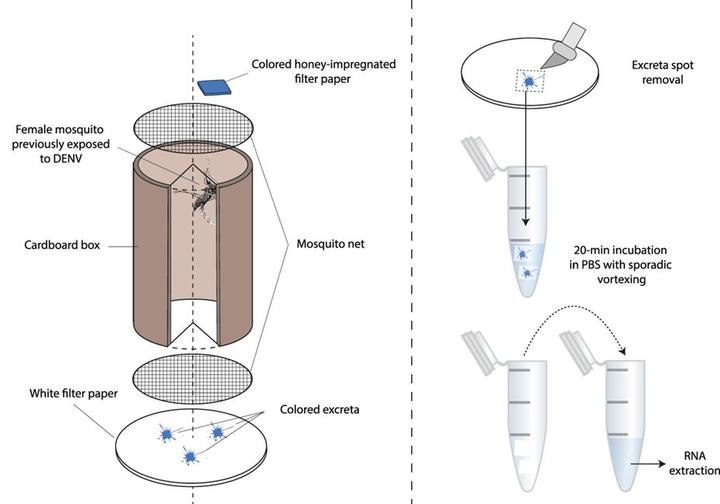Excretion of dengue virus RNA by Aedes aegypti allows non-destructive monitoring of viral dissemination in individual mosquitoes

Abstract
Successful transmission of a vector-borne pathogen relies on a complex life cycle in the arthropod vector that requires initial infection of the digestive tract followed by systemic viral dissemination. The time interval between acquisition and subsequent transmission of the pathogen, called the extrinsic incubation period, is one of the most influential parameters of vector-borne pathogen transmission. However, the dynamic nature of this process is often ignored because vector competence assays are sacrificial and rely on end-point measurements. Here, we report that individual Aedes aegypti mosquitoes release large amounts of dengue virus (DENV) RNA in their excreta that can be non-sacrificially detected over time following oral virus exposure. Further, we demonstrate that detection of DENV RNA in excreta from individual mosquitoes is correlated to systemic viral dissemination with high specificity (0.9-1) albeit moderate sensitivity (0.64-0.89). Finally, we illustrate the potential of our finding to detect biological differences in the dynamics of DENV dissemination in a proof-of-concept experiment. Individual measurements of the time required for systemic viral dissemination, a prerequisite for transmission, will be valuable to monitor the dynamics of DENV vector competence, to carry out quantitative genetics studies, and to evaluate the risk of DENV transmission in field settings.